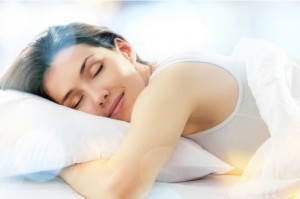 One of the most important areas for me as a practicing neurologist is the overlap between neurology and sleep. Many neurological disorders including migraine, epilepsy, amyotrophic lateral sclerosis (ALS a.k.a Lou Gehrig’s disease) and Alzheimer’s disease have all been associated with significant sleep abnormalities. When examining patients who complain of various sleep issues, I routinely take a sleep history and utilize the Epworth sleepiness scale. Insomnia has become so prevalent that I deal with it, as a neurologist, on a daily basis. It has become so common that we decided to expand our office and offer some sleep therapies that combine medical and non-medical (without prescription drugs) treatments. There are so many different reasons for sleep disturbances but in this month’s column I would like to focus on sleep issues as they relate to concussion and Parkinson’s disease. These two neurological conditions are often associated with prominent sleep symptoms. Next month I will address and discuss insomnia in general.
One of the most important areas for me as a practicing neurologist is the overlap between neurology and sleep. Many neurological disorders including migraine, epilepsy, amyotrophic lateral sclerosis (ALS a.k.a Lou Gehrig’s disease) and Alzheimer’s disease have all been associated with significant sleep abnormalities. When examining patients who complain of various sleep issues, I routinely take a sleep history and utilize the Epworth sleepiness scale. Insomnia has become so prevalent that I deal with it, as a neurologist, on a daily basis. It has become so common that we decided to expand our office and offer some sleep therapies that combine medical and non-medical (without prescription drugs) treatments. There are so many different reasons for sleep disturbances but in this month’s column I would like to focus on sleep issues as they relate to concussion and Parkinson’s disease. These two neurological conditions are often associated with prominent sleep symptoms. Next month I will address and discuss insomnia in general.
The relationship between concussion and sleep is bidirectional, as the presence of a sleep disorder may predispose towards having a concussion. Sleep related symptoms are very common after a concussion and include both insomnia and hypersomnia. About 50% of individuals report insomnia after sustaining a concussion. Insomnia encompasses difficulty falling asleep, difficulty staying asleep and waking up too early, resulting in abnormal daytime functioning. Many patients also report an increased need for sleep. Circadian rhythm disturbances, such as delayed sleep phase disorder (sleepiness developing later than desired) and irregular sleep wake disorder, have been described after concussion. There is also some evidence that central sleep apnea may occur after head trauma. Some studies suggest that treatment of the sleep disorder may have a favorable effect on the ultimate course of concussion, perhaps secondary to enhanced neuroplasticity. Treatments of these sleep disorders include proper sleep hygiene, cognitive behavioral therapy, light therapy, melatonin, hypnotic and antidepressant medications, wake promoting agents and alternative therapies. In addition, posttraumatic hypersomnia may sometimes satisfy the diagnostic criteria of narcolepsy.
When dealing with Parkinson’s disease (PD), the causes of insomnia, which is most often described as impaired sleep maintenance, is complex; it may be secondary to the emergence of parkinsonian motor symptoms during sleep, stimulating medications or circadian reversals. The daytime hypersomnia in PD may be secondary to dopaminergic medication, which in extreme form may cause sleep attacks. About 50% of patients with PD suffer from excessive daytime sleepiness, which may be due to degeneration of brain arousal systems.
Other sleep disorders seen in patients with PD include restless legs syndrome and REM sleep behavior disorder (RBD). Restless legs syndrome is slightly more common in patients with PD when compared to the general population. RBD, where patients act out their dreams, is clinically evident in about 35% of PD patients. In severe cases, RBD may lead to significant injury of the patient or bed partner. The diagnosis of isolated RBD also has important prognostic implications, as almost all patients with RBD will eventually develop parkinsonism and/or dementia. Treatment of RBD is available once diagnosed by a neurologist familiar with the disorder.
The above is just a sample of the complexity of sleep symptoms which coexist with some neurological disorders. Any sleep symptoms you may experience should prompt further diagnostic evaluation. Fortunately, a variety of treatments are available for such sleep disorders. So go ahead, sleep tight, your neurologist is here for you!!
GArdens Neurology
“Patient-Centered Care”
David Silvers, M.D.
Board Certified in Neurology,
Electrodianostic Medicine/EMG,
and Neuromuscular Medicine
Call For An Appointment
561-799-2831
www.GardensNeurology.com
3401 PGA Blvd., Suite 430
Palm Beach Gardens, FL 33410
Check Also
RejuvaNATION MedSpa: Elevating Men’s Health to New Heights
Embark on a Journey to Revitalize Your Vitality Rediscover the joy of a spontaneous sex …
 South Florida Health and Wellness Magazine Health and Wellness Articles
South Florida Health and Wellness Magazine Health and Wellness Articles




